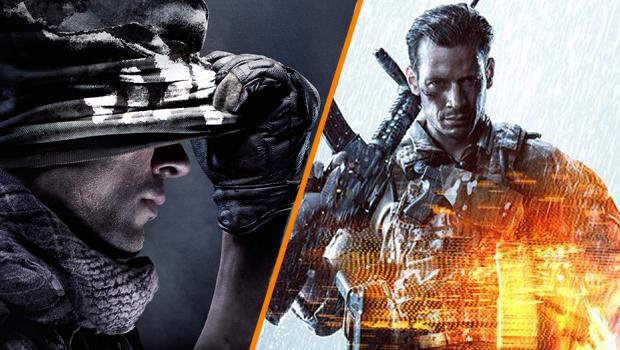Call of Duty finally calls for change
November 18, 2016
That time has come again. The annual approach of this year’s installation of Call of Duty and competing titles, though as evident with only a quick look at this year’s news headlines, 2016 continues to shake things up, but this time in a good way.
Information released about the upcoming Call of Duty: Infinite Warfare has been largely overshadowed by the myriad of screenshots, trailers, and other media illustrating Battlefield 1, a shooter which promised the same caliber of gameplay and graphical fidelity seen in other examples of these yearly titles, only taking place on the blood-stained battlefields of the first World War.
Additionally, the developers of Battlefield 1, DICE, promised other mainstays of their Battlefield series, including the overly-large maps and vehicle aspects which have remained a large part of each game’s release.
However, what appears to be the most impressive aspect of this game, and what is really setting it apart from Infinite Warfare is definitely the visual appeal of the war-torn and chaotic scenes of rubble-strewn French towns being demolished by early-era tanks and the deserts of Africa being trampled by horses and bombarded by blimps and biplanes.
One of the common complaints about recent installments in series such as Call of Duty and Battlefield is the trend towards a more futuristic environment, even to the point of becoming comical, with several calls to return to the style seen in much earlier games, especially those depicting World War II.
Even for myself, this is true. I have fond memories of times spent laying beaten and bloodied on the beaches of Normandy only to try again and again while the more recent titles fail to provide the same sense of wonder and excitement.
Since the game’s release on October 21st, another of the major compliments about the game has been its single-player campaign, which has been cited as awe-inspiring, especially in comparison to earlier Battlefield campaigns.
This, too, is another aspect of the game that sets it apart from Call of Duty. One of the major complaints about that series, too, has been the slow degradation of its single-player campaign.
Perhaps it is the sense of being able to relive the battles of what was at that time the bloodiest conflict in human history through the lens of any number of foot soldiers and vehicle operators that makes Battlefield 1 so much more successful that its competitor. Perhaps instead it is the ability to make use of biplanes, early-model tanks and blimps to aid in the rending of your enemies rather than the same re-done quad copters and attack helicopters.
Regardless, as it stands Battlefield 1 looks ready to finally overtake Call of Duty in sales and reviews, and perhaps it’s time for Call of Duty to take a hint. The current formula of increasingly futuristic shooters has become less and less enjoyable and captivating for many players, and while a return to the classic games may not be the only or best solution, the success of Battlefield 1 goes to show that switching up the dynamics of gameplay can’t hurt.


